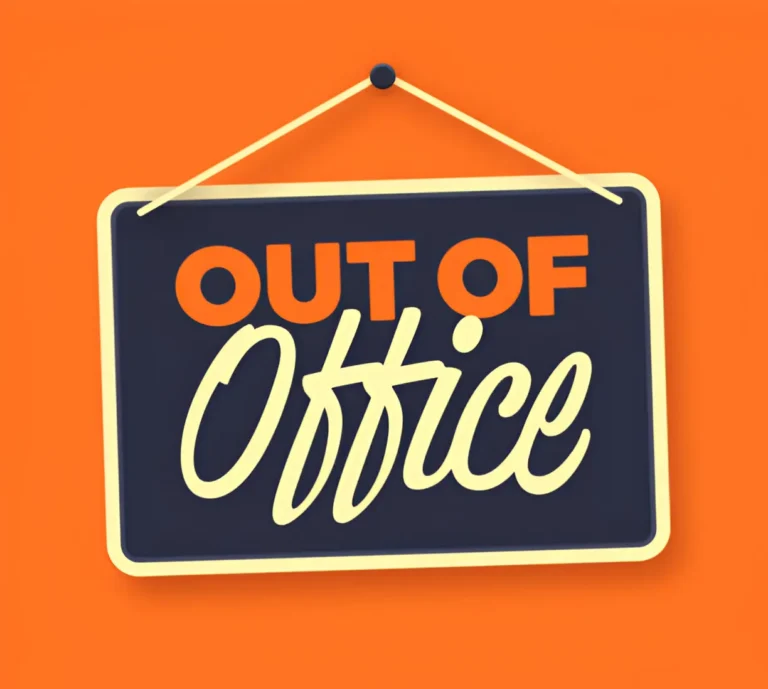The 2AM Mindset: Why Nighttime Anxiety is a Workplace Issue
It’s 2AM and your eyes snap open. The house is quiet, the city is still, but your mind is racing. You replay an awkward comment from a meeting. You worry about tomorrow’s deadlines. You remember the email you forgot to send. What should have been restorative rest becomes a restless cycle of overthinking, and by morning, you feel drained before the day even begins.
This late-night spiral isn’t just a personal quirk or a sign of poor sleep hygiene—it’s a workplace issue. The “2AM mindset,” where employees carry workplace stress into their nights, is a growing concern that directly affects mental health at work, productivity, and overall wellbeing. Let’s unpack why it happens, why it matters, and what both individuals and organisations can do about it.
The Science of Nighttime Anxiety
The brain has a cruel way of amplifying worries at night. During the day, distractions—emails, conversations, tasks—act as mental buffers. At night, when external stimuli fade, the brain defaults to processing unresolved issues. The amygdala, our brain’s fear center, becomes more active during periods of stress, while the rational prefrontal cortex winds down. This means worries feel sharper, less manageable, and more urgent in the middle of the night.
For workers, this often manifests as ruminating over:
- Incomplete tasks or looming deadlines.
- Workplace conflicts or perceived mistakes.
- Job security concerns.
- Self-doubt about performance.
What starts as a racing thought can trigger a cascade: elevated heart rate, cortisol spikes, shallow breathing, and ultimately, disrupted sleep cycles.
From Sleeplessness to the Office
One sleepless night might seem harmless, but recurring nighttime anxiety creates a ripple effect that shows up in the workplace:
- Fatigue and Brain Fog – Lack of restorative sleep reduces concentration, memory, and decision-making, leading to avoidable errors.
- Emotional Reactivity – Sleep deprivation increases irritability and lowers resilience, making small workplace frustrations feel overwhelming.
- Productivity Loss – Studies consistently show that poor sleep is linked to reduced output and higher absenteeism.
- Cycle of Stress – Anxiety leads to poor sleep, which leads to lower performance, which fuels more anxiety.
This cycle doesn’t stay at home—it arrives at the office every morning in the form of a tired, anxious employee.
Why Nighttime Anxiety is a Workplace Issue, Not Just a Personal One
Traditionally, sleepless nights were seen as an individual’s problem to fix—drink chamomile tea, cut out caffeine, try meditation. While those tactics help, they ignore the deeper issue: the root cause often lies in workplace culture and expectations.
Here’s why the 2AM mindset belongs on every manager’s radar:
- Unrealistic Workloads: When people feel they must sacrifice personal time to keep up, stress spills into the night.
- Always-On Culture: Late-night emails, Slack pings, or even the unspoken expectation of instant responsiveness blur the boundaries between work and rest.
- Job Insecurity: Economic uncertainty or fear of redundancy feeds late-night rumination.
- Unclear Expectations: Ambiguity at work often translates into spinning thoughts at night—“Am I doing this right? What will my boss think?”
Workplaces that ignore these systemic factors risk higher turnover, disengagement, and burnout.
The Human Cost
Imagine Sarah, a project manager. During the day, she appears composed, delivering reports and juggling client calls. At night, though, she replays every meeting, second-guesses her emails, and lies awake rehearsing tomorrow’s presentation. By morning, she is exhausted and self-critical.
Or David, a junior employee in a competitive firm, who feels he must be online at all hours to prove his worth. He sleeps with his phone by his bed, jolting awake at 2AM to check if he missed anything.
These stories aren’t rare. They highlight how anxiety linked to work bleeds into the private hours of employees’ lives, reducing not only job performance but also quality of life.
Addressing the 2AM Mindset: Individual Strategies
While systemic change is essential, employees can take steps to calm their minds and reclaim the night.
- Wind-Down Rituals: Creating a pre-sleep routine—reading, journaling, gentle stretching—signals to the brain it’s time to switch off.
- Write It Down: A simple notebook by the bed to “park” worries or to-dos can reduce the mental load.
- Limit Stimuli: Avoid screens before bed, as blue light and work notifications keep the mind alert.
- Reframe Thoughts: Remind yourself, “This isn’t the time to solve problems; morning me will handle it.”
- Mind-Body Practices: Breathing exercises, progressive muscle relaxation, or guided meditation help calm the nervous system.
These tools don’t erase workplace stress, but they provide healthier coping mechanisms when anxiety creeps in.
Addressing the 2AM Mindset: Organisational Strategies
Employers hold the real power to tackle the root causes of nighttime anxiety. A supportive culture can make the difference between a workforce that dreads the night and one that rests easy.
- Model Boundaries: Leaders who avoid sending emails at midnight or who respect out-of-office hours set the tone.
- Workload Management: Regular check-ins to ensure tasks are realistic help reduce the pressure that fuels late-night worry.
- Clear Communication: Setting expectations around projects and deadlines eliminates ambiguity that sparks rumination.
- Promote Sleep Literacy: Wellness programs that emphasise the importance of sleep as part of performance—not just exercise and nutrition—normalise the conversation.
- Psychological Safety: When employees feel they can admit mistakes or raise concerns without punishment, there’s less mental replaying of “what ifs” at 2AM.
Reframing Sleep as Part of Mental Health at Work
For too long, sleep has been treated as a personal responsibility, while organisations focus narrowly on productivity hacks and resilience training. But the truth is: sleep is a cornerstone of wellbeing, and when employees can’t rest because of work stress, it is a workplace issue.
Companies that integrate sleep health into their mental health at work strategies—through policy, leadership modelling, and open dialogue—send a powerful message: rest isn’t weakness; it’s a foundation of performance.
A Cultural Shift We Need
The glorification of burning the midnight oil still lingers in many workplaces. Late nights, bleary eyes, and caffeinated mornings are seen as badges of honour, proof of dedication. But what if, instead, we started valuing the employee who says, “I’m logging off to recharge,” or the manager who encourages teams to rest?
Challenging this culture means recognising that the 2AM mindset isn’t about individual weakness. It’s about a system that rewards overextension and punishes pause. Reversing it requires redefining productivity not as constant output, but as sustainable performance supported by rest.
Reclaiming the Night
The 2AM mindset is more than a restless night—it’s a signal. A signal that workplace stress has crossed the boundary from office to bedroom, robbing employees of rest and clarity. It’s a signal to organisations that mental health at work cannot be siloed from personal wellbeing.
By reframing nighttime anxiety as a workplace issue, we open the door to healthier cultures, clearer expectations, and more humane definitions of success.
Because at the end of the day—or rather, at the end of the night—employees don’t just need the freedom to work well. They need the freedom to sleep well, too.
Read more: Smart Strategies for Growing B2B Businesses Online With SEO » Dunkin Donuts
Why Regular Pest Inspections Are Worth It
Positioning Your Company for Long-Term Success » Dunkin Donuts






